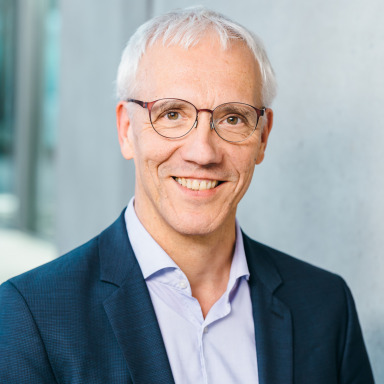Overline:
IASS Founding Director
Headline:
Democracy and Sustainability – A Strained Relationship? Klaus Töpfer Honoured at Symposium
Democracy, science, and the rule of law are increasingly coming under pressure. How can we defend them? How can we harness new technologies and use our knowledge, ingenuity and wealth to achieve the goal of sustainable development: a good life for all? To mark the eightieth birthday of former Minister of the Environment and IASS Founding Director Klaus Töpfer, the Federal Ministry of Education and Research and the IASS held a symposium titled “Friends of the Open Society” on 21 November 2018.
In their opening words, Patrizia Nanz, Managing Scientific Director of the IASS, and Alexander Müller, Managing Director of TMG Think Tank for Sustainability, welcomed the participants and explained that the purpose of the symposium was to formulate long-term strategies to counteract short-term thinking.
Federal Minister of Education and Research Anja Karliczek then expressed her hope that the symposium would be an opportunity to learn from Klaus Töpfer’s example. His strategy of linking scientific insights and political action was “more important than ever in today’s world,” she emphasised. Karliczek reminded her listeners that each and every one of us has a duty to defend the open society. The “social impact assessment” for new technologies that Klaus Töpfer had once advocated now needed to be complemented by a “democratic impact assessment”. Science, in her view, had a pivotal role to play here, since it provides the foundation of knowledge and facts that makes public debate possible in the first place. This was why her ministry is investing in education and research on climate change, which represents the greatest challenge facing humanity in the twenty-first century. Karliczek said that with the coal phaseout in Germany, “a five-hundred-year history of mining was drawing to a close” and underlined that this structural transformation heralds the dawning of a new age in which we must produce “ideas instead of coal”. She stressed that climate protection and economic development can go hand in hand since, nowadays, new ideas and education are the motor of growth. For the Minister, “human creativity knows no bounds.”
“Governments that don’t do enough create societies that don’t think enough.”
Bernd Ulrich, Deputy Editor-in-Chief of the German weekly Die Zeit referred in his talk to the current unprecedented level of interest in ecological issues. The issues of migration and refugees had dominated public debate for an extended period, during which environmental concerns had been dismissed as a niche interest. “But that’s changing now,” Ulrich explained, as the evidence of an ecological crisis mounts and the effects of climate change are being felt even in Europe. “The Ecological Age has dawned,” said Ulrich. In his view, climate change and our struggles to adapt to it will play a central role in the twenty-first century. And while today’s burgeoning authoritarian movements aggressively pursue an anti-environmental agenda, this has provoked strong resistance. Ecological questions have now taken centre stage and politicians are becoming more pro-active on this front. This is important because, in Ulrich’s words, “governments that don’t do enough create societies that don’t think enough.”
In her keynote address, Lisa Herzog, a professor at the TUM School of Governance in Munich, discussed the different possible motives for generating knowledge. Knowledge, in her view, can either be seen through the prism of the common good or through the prism of self-interest. In the first case, it is oriented to the needs of society as a whole; in the second it serves the self-interested pursuit of profit. “Science must position itself between these two poles,” Herzog said. “It cannot be a passive bystander.” At the same time, she argued, the old, platonic model of policy advice dispensed by “philosopher kings” is now obsolete. For Herzog, scientific knowledge is just one form of knowledge, and it is important that science engages with other sectors of society. “What’s needed is a dialogue with citizens, in full consciousness of the limits and the indispensability of scientific methods.”
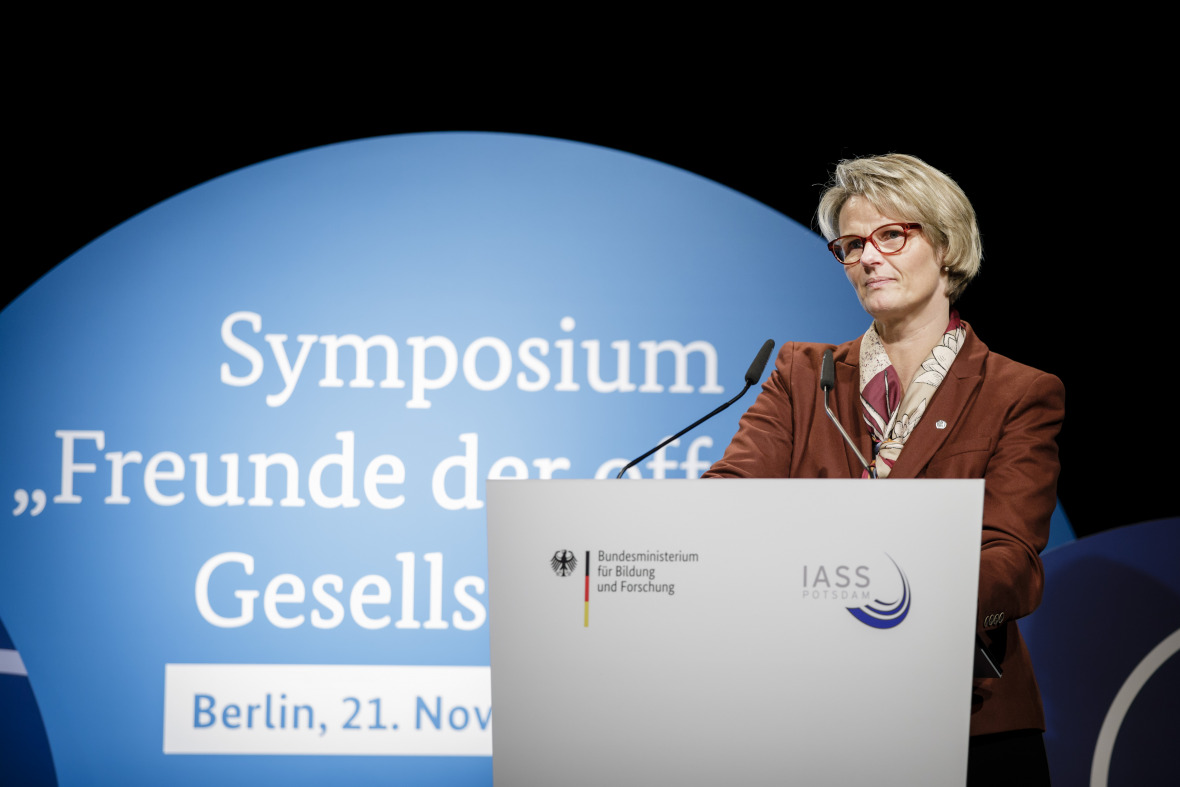
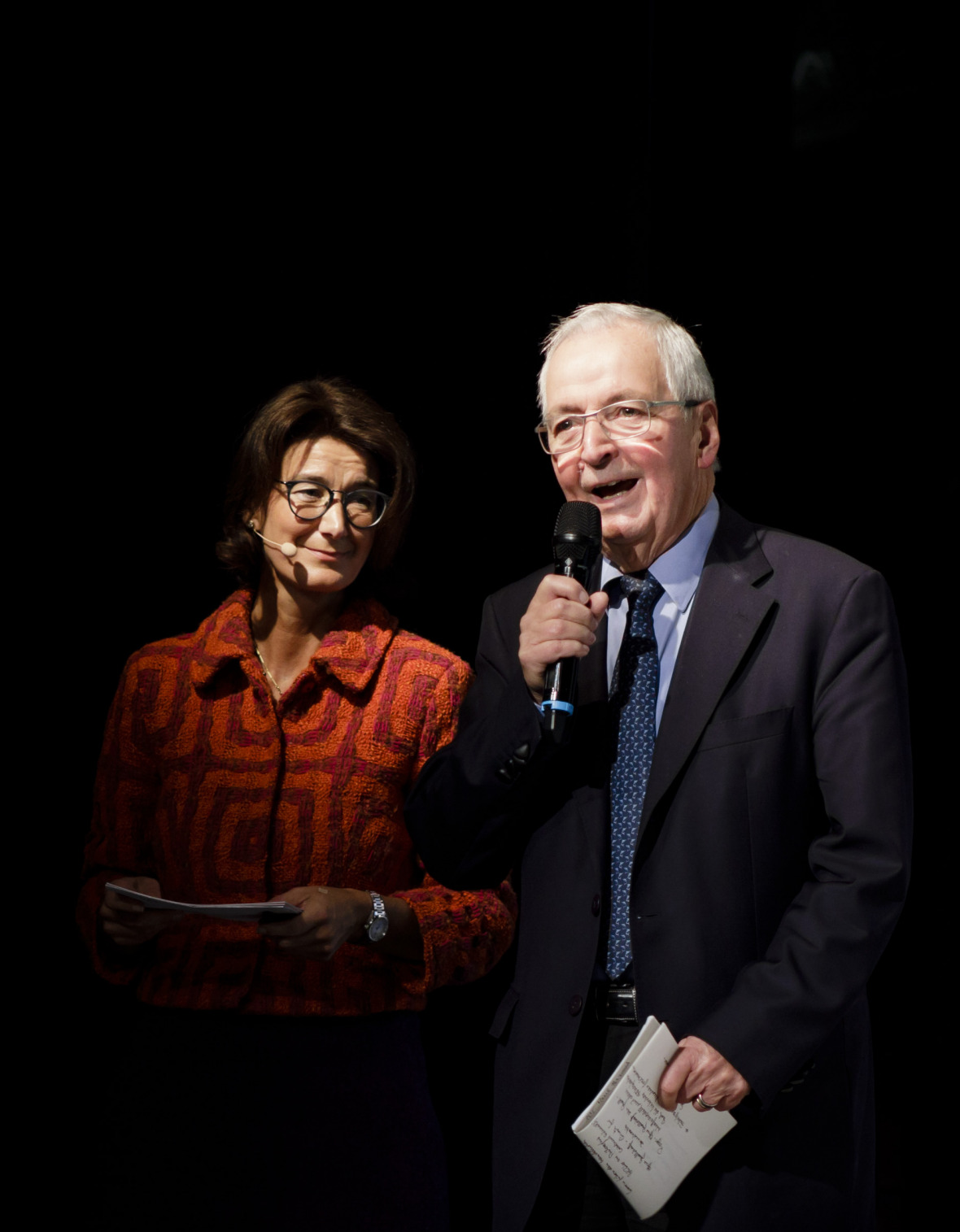
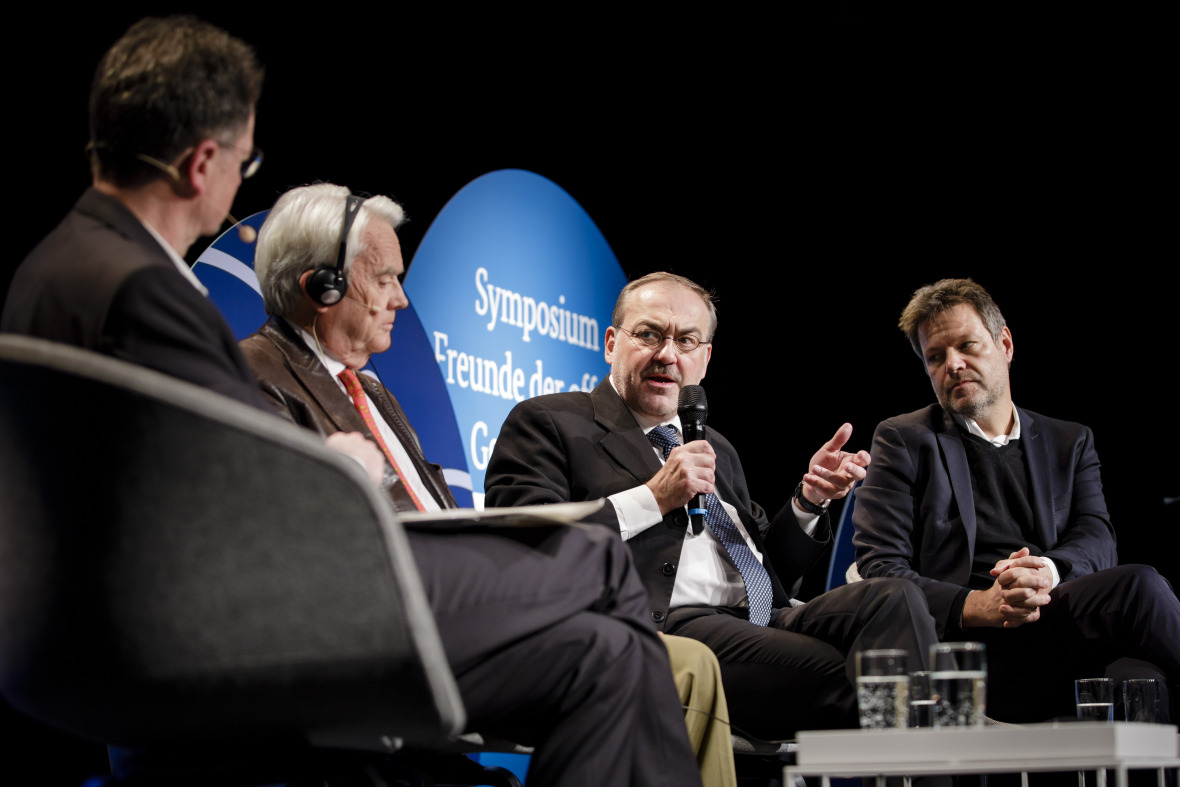
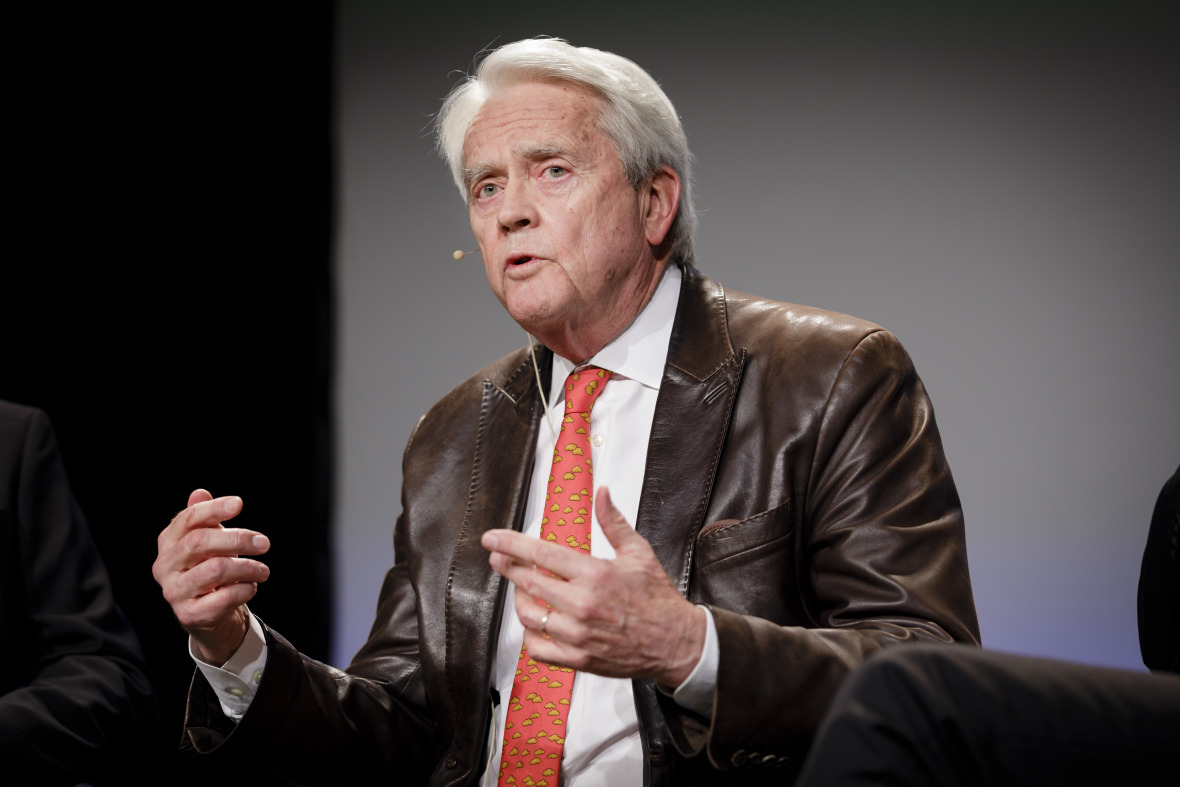
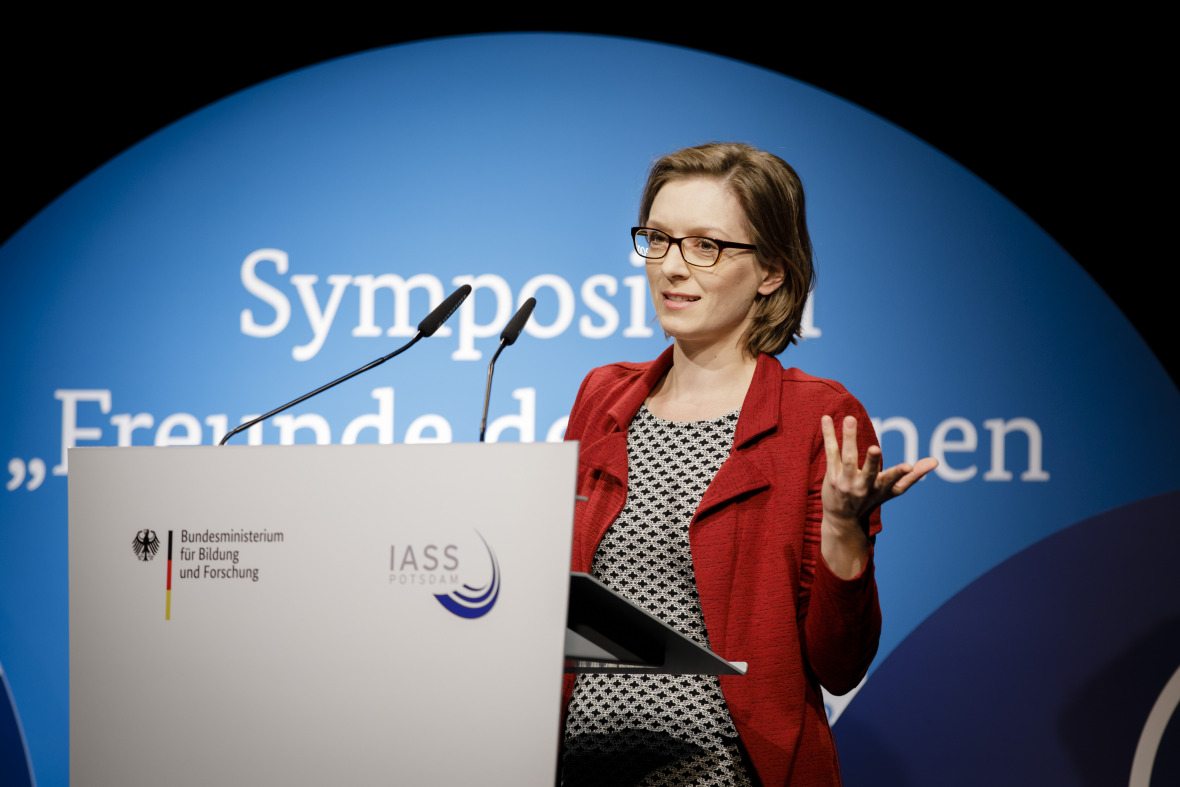
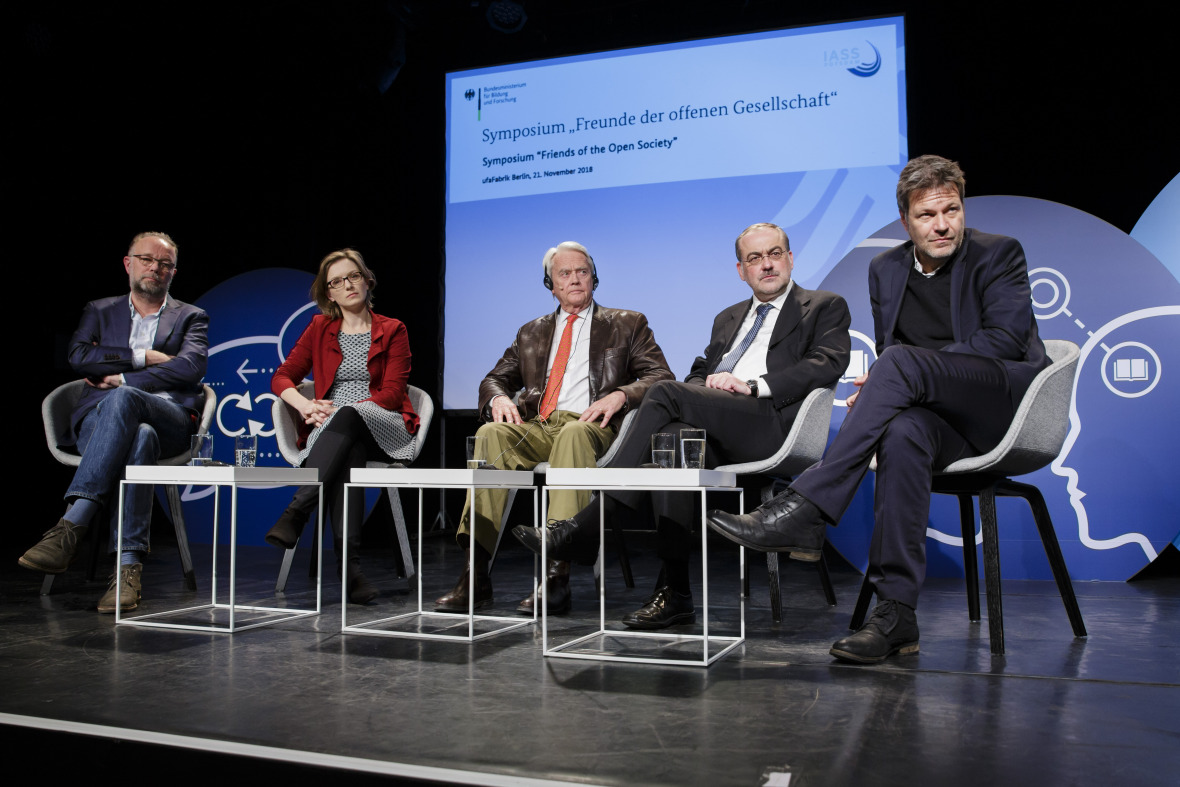
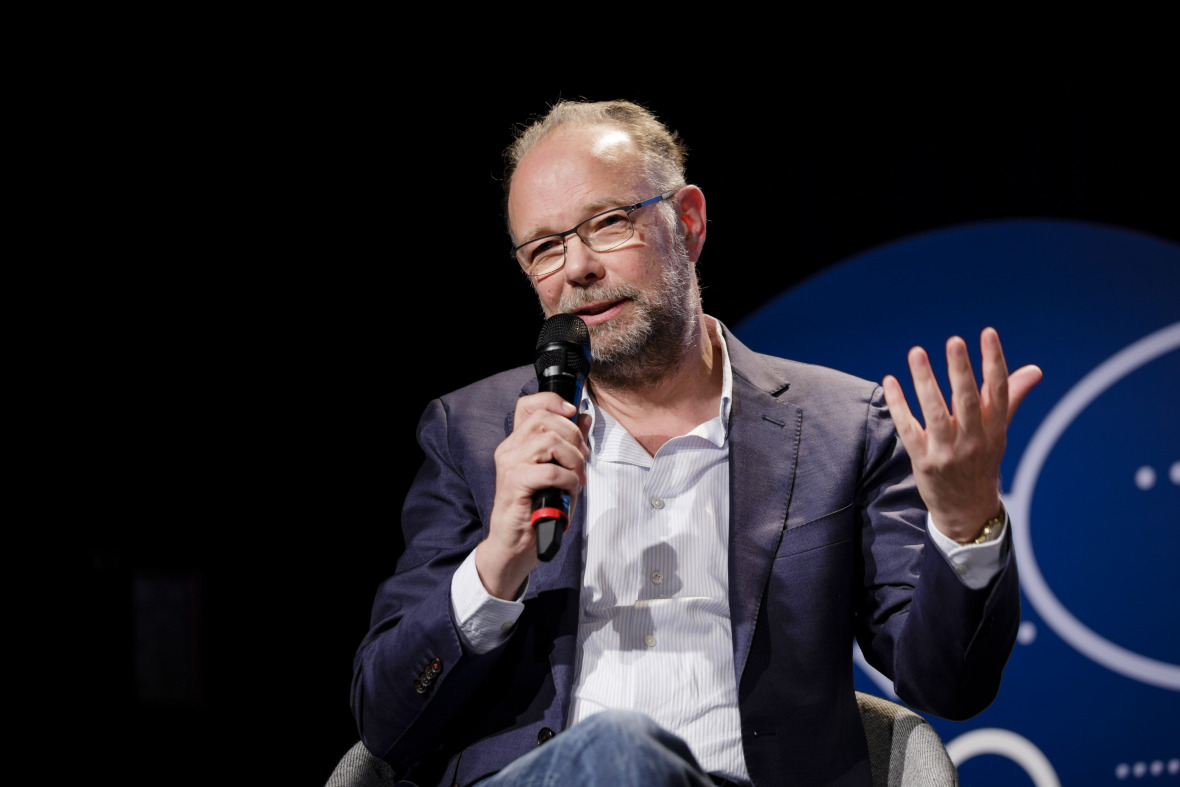
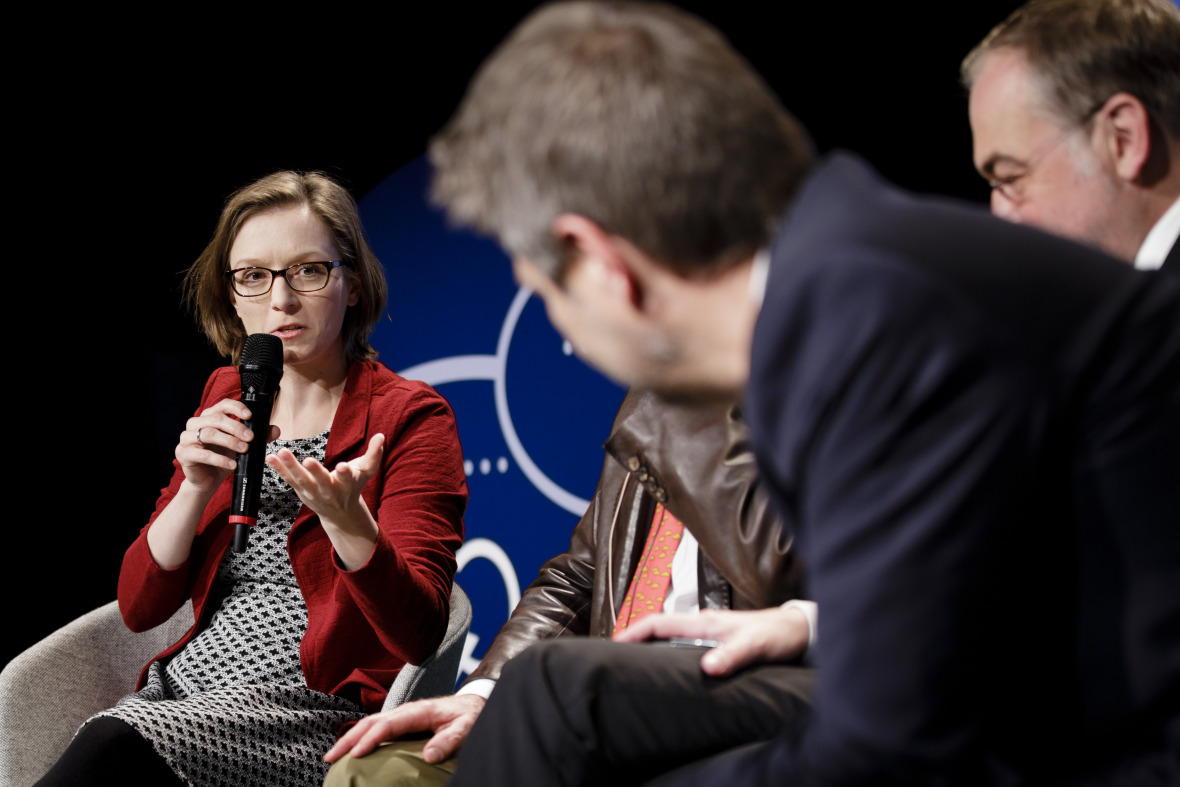
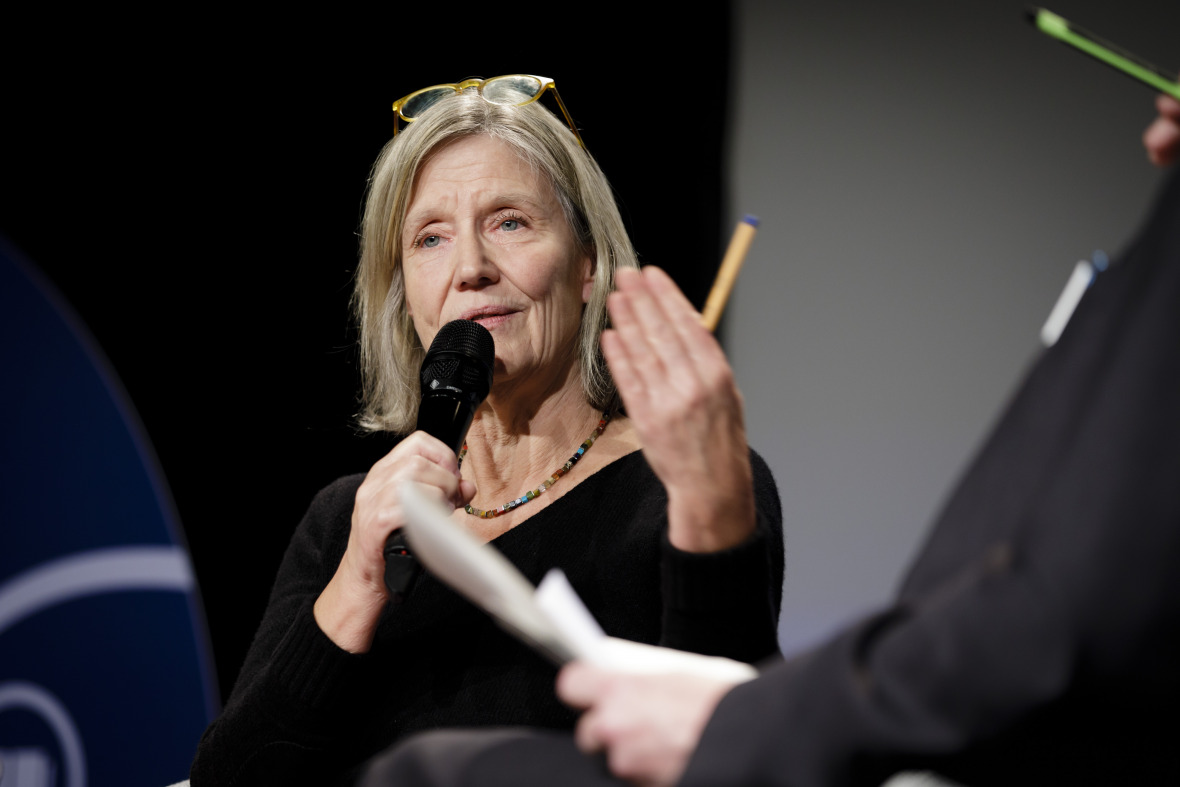
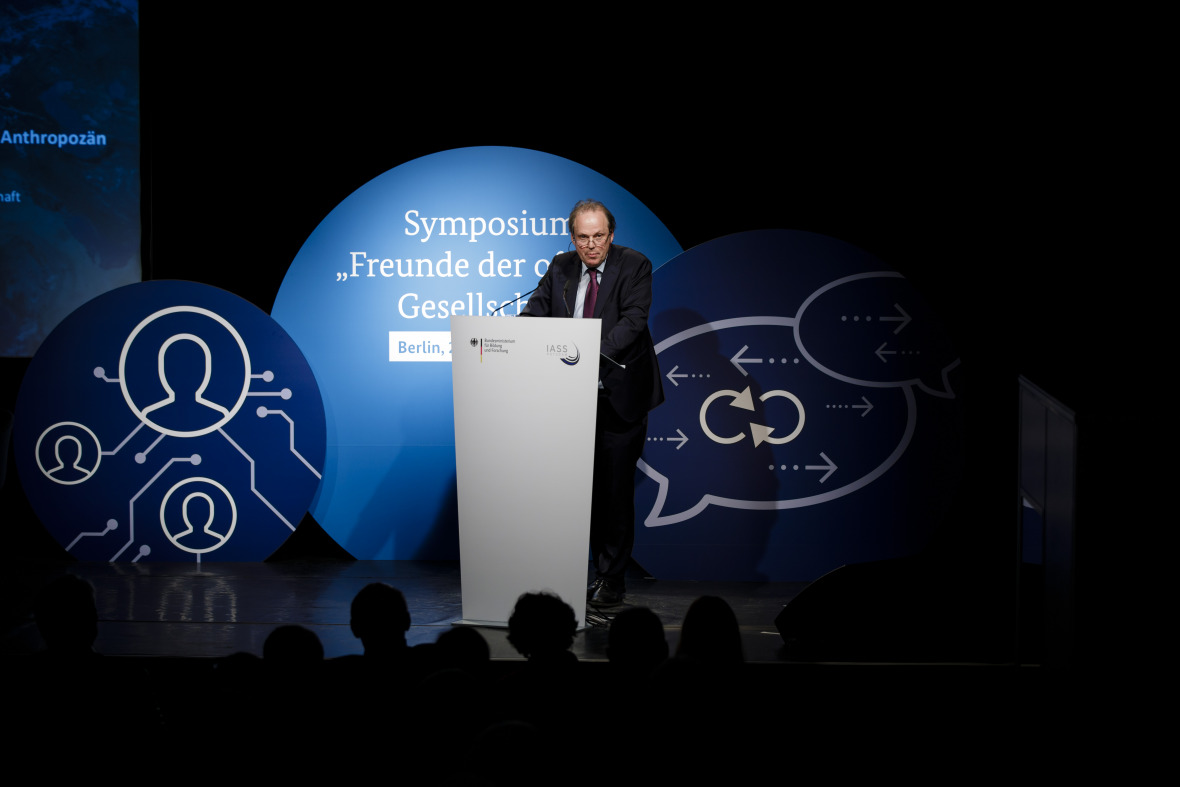
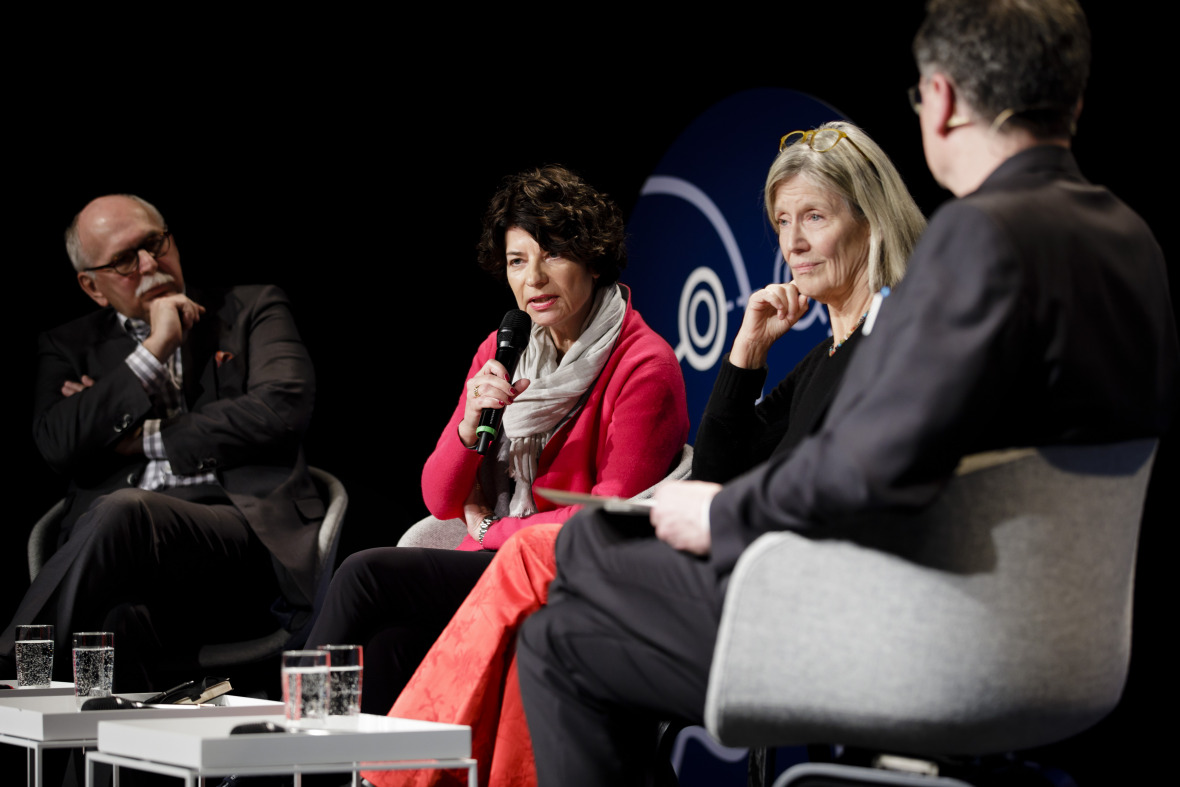
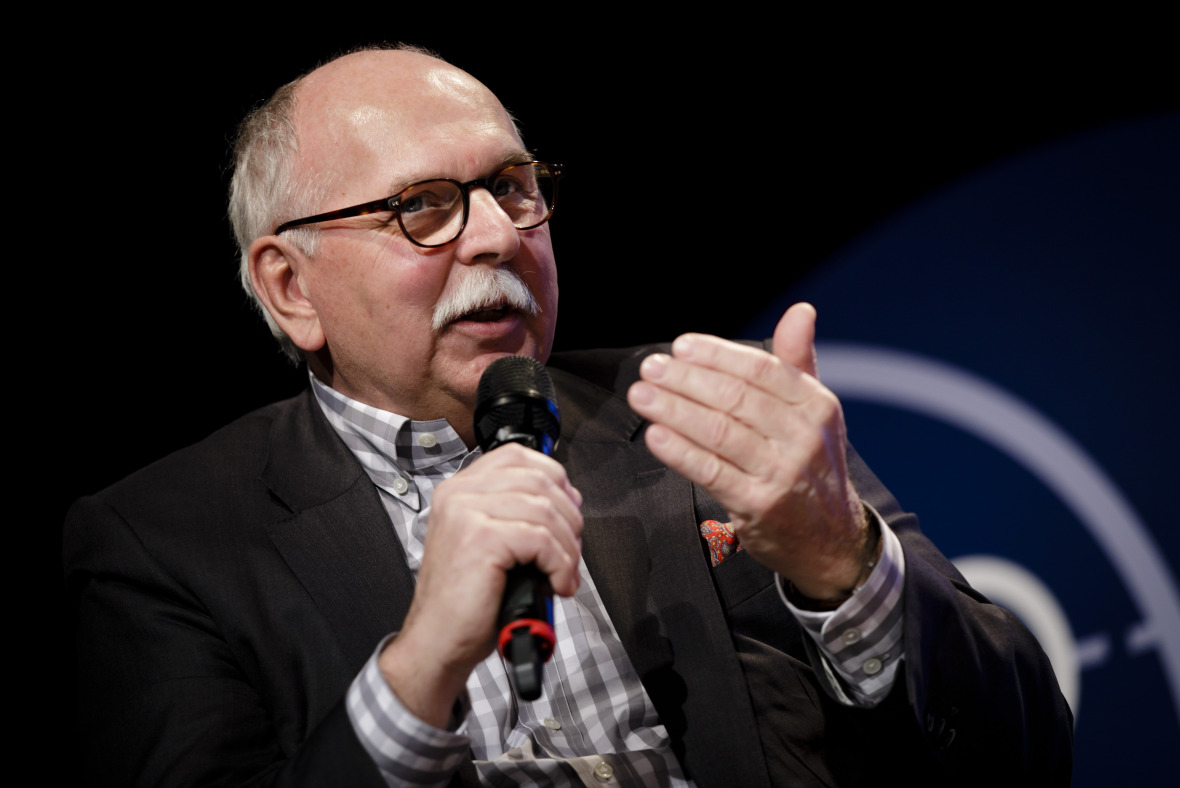
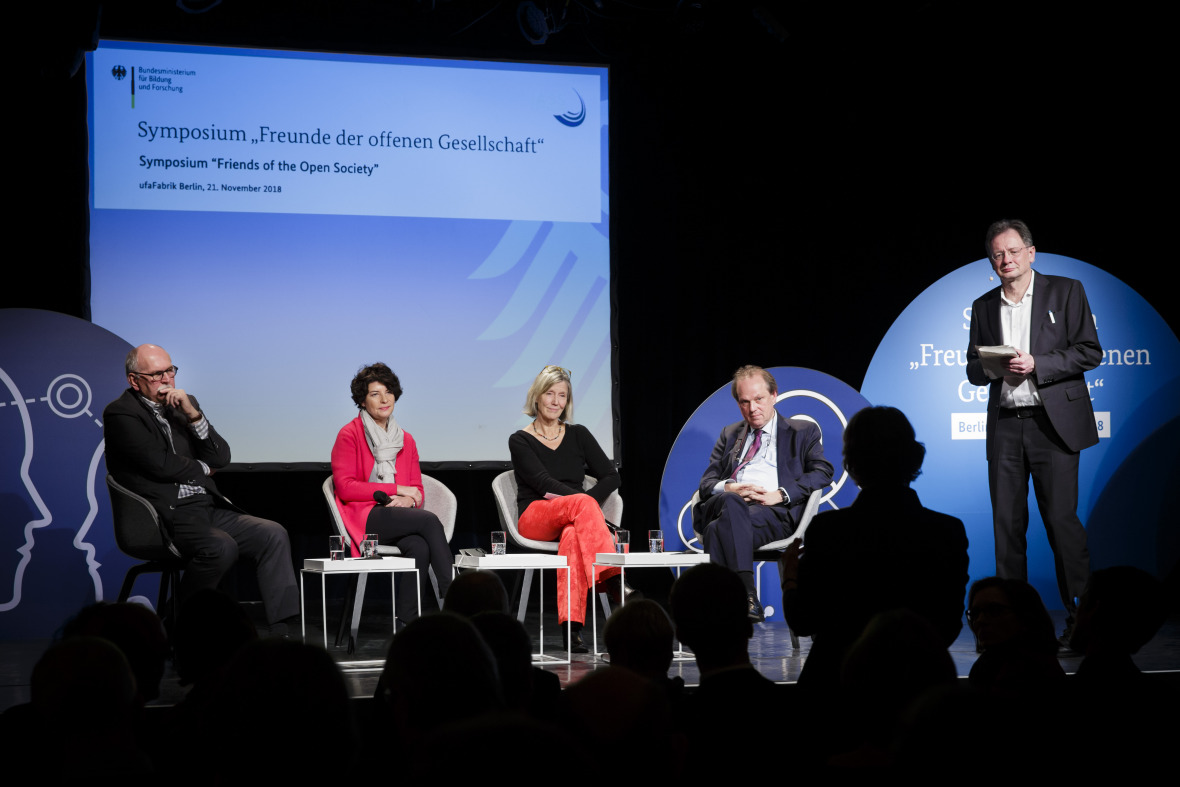
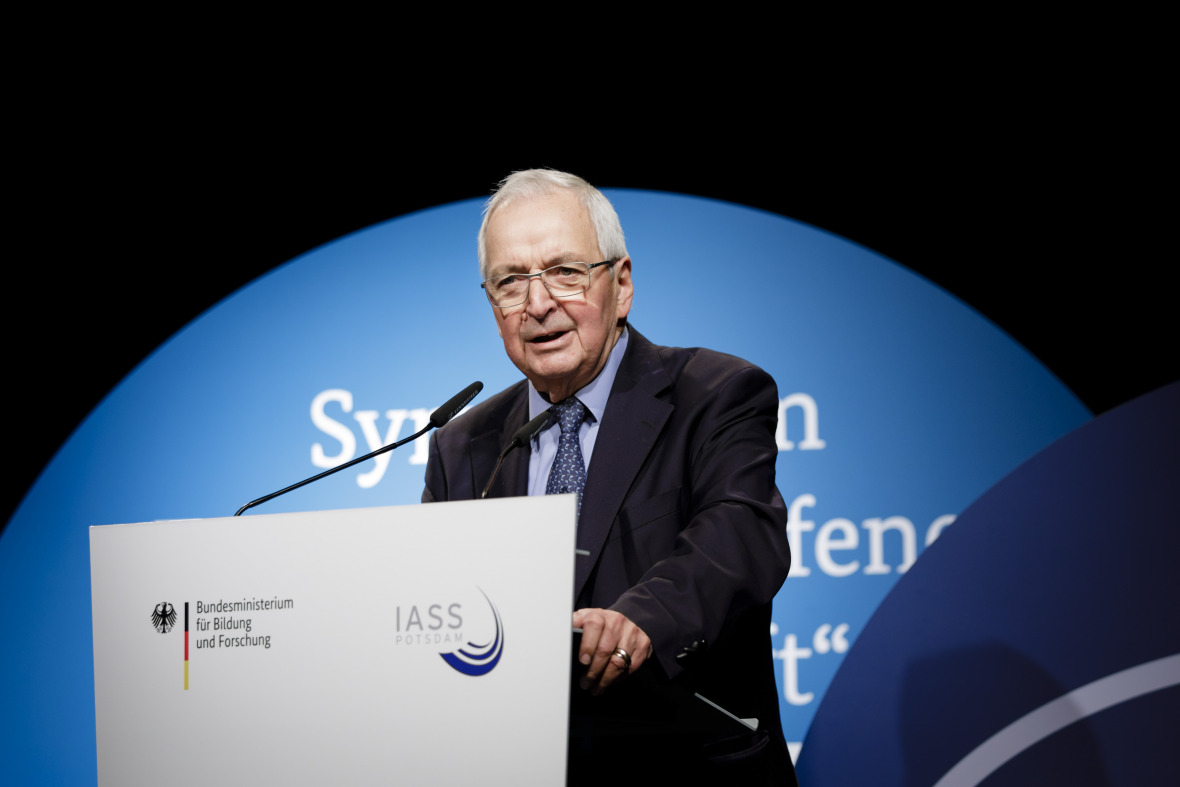
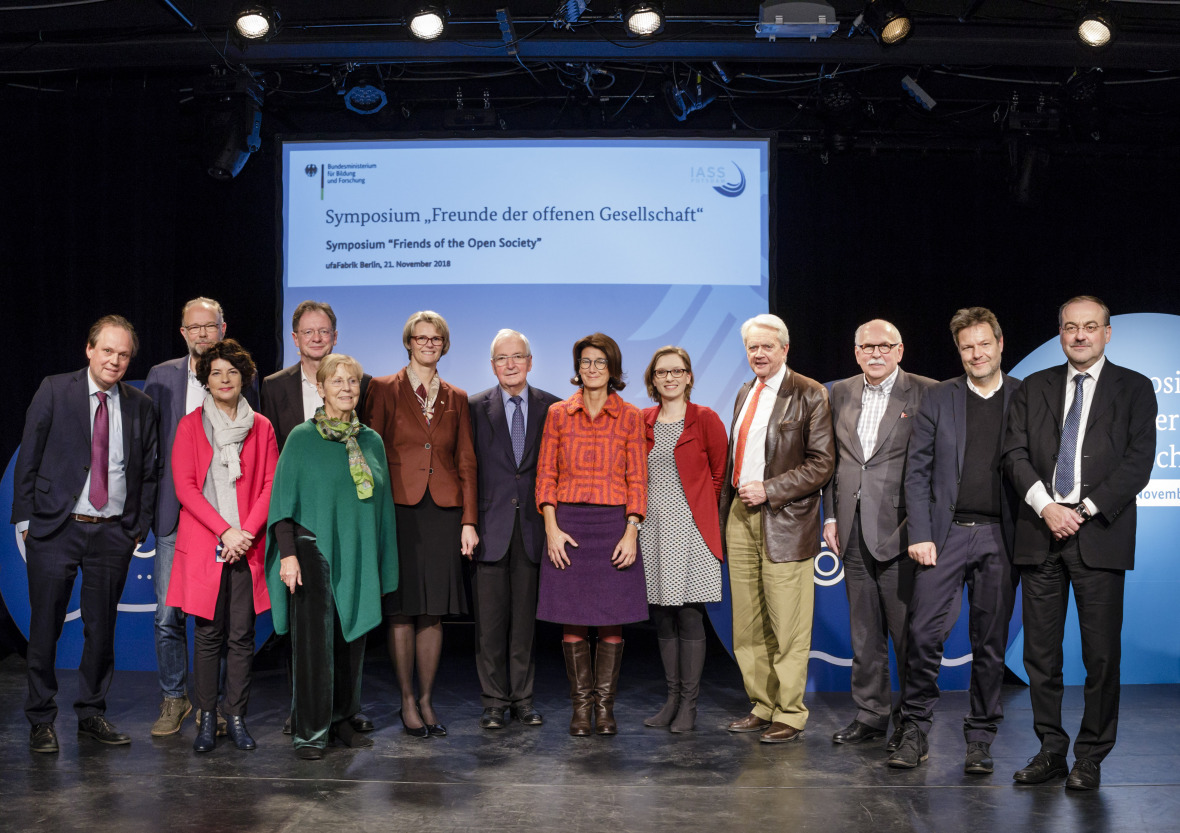
Tolerance, dissent, and opposition – preconditions for a thriving democracy
Herzog’s talk was followed by a panel discussion with Lisa Herzog, Thomas Bauer (Professor at the Institute for Arabic and Islamic Studies, University of Münster), Robert Habeck (Federal Chairman of Bündnis 90/Die Grünen) and William K. Reilly (former head of the Environmental Protection Agency, USA), which focused on how social cohesion might be promoted within both Germany and the international community. Thomas Bauer noted that our capacity to tolerate dissenting views and ambiguity has diminished. This ability, he argued, is vital if democracies are to flourish: “The foundations of a democracy should be relatively well defined, but within these parameters, citizens must be able to tolerate dissenting and indeed contrary views.” “Simple solutions” must not be allowed to dominate political discourse, concurred Robert Habeck. Politicians and scientists must stand up for the values of the Enlightenment such as skepticism and dispassionate reasoning. Environmental issues provide an opportunity to promote these values as their solution requires both dialogue and joint action.
In the following keynote, Jürgen Renn (Director of the Max Planck Institute for History of Science) spoke about the opportunities and risks presented by technological innovations. We should not anticipate that all of the problems facing humanity can be solved through technical innovation alone, emphasised Renn. The debate around climate geo-engineering offers a case in point. Support for deliberate human interventions in the climate system is growing, Renn noted, yet the scale of this challenge is frequently underestimated: “The Earth is a complex, non-linear biophysical system. Our global society and the growth paradigm that drives it have become critical factors in the dynamics of this system, and this development represents a paradigm shift in the history of knowledge that is not to be underestimated. We – in other words, humanity with all its power imbalances – are messing with a system that we barely understand.” Not only does humanity possess too little knowledge, in practice many types of knowledge are often kept in silos. The democratisation of innovation processes is therefore not merely desirable but is in fact a necessary prerequisite for the success of innovations.
In the subsequent panel discussion, Matthias Kleiner (President of the Leibniz Association), Christiane Grefe (Editor of the ZEIT) and Petra Grimm (Director of the Institute for Digital Ethics at Stuttgart Media University) considered how society should deal with technological innovation. They agreed that public debates were frequently marred by the poor quality of available information. “Some of positions put forward in the debate on digitalisation suggest that we have to save ourselves and this can have a dangerous effect. Digitalisation is a man-made phenomenon and we have to talk about what we want and what we don’t want,” argued Matthias Kleiner. What is needed are new narratives that focus on the meaning of progress and innovation, added Petra Grimm.
Maintaining intellectual flexibility with Karl Popper
The symposium concluded with a talk by the man of the hour: Klaus Töpfer expressed his delight that so many people from different stations of his life had chosen to attend the symposium. The theme of the symposium was well chosen, Töpfer noted, as he had drawn inspiration since his student days from the writings of the philosopher Karl Popper, who coined the term “open society”. Popper’s substitution of the principle of verification in favour of falsifiability is particularly important, Töpfer argued, as it draws attention to the fact that humans never make decisions with perfect information. “And if this is the case, we must entertain the possibility that something has been overlooked and consider the negative consequences that might follow from this,” said Töpfer.
This insight is reflected in the preference in contemporary sustainability policymaking for decentralised solutions tailored to local circumstances rather than the blanket application of the same technologies. During his term as Executive Director of the United Nations Environment Programme, he saw that technologies that work well in industrialised nations were often unsuited for use in African countries. If we are to put our planet and its future population of nine billion human inhabitants on a pathway towards sustainable development, it is vital that we work together to develop solutions that are tailored to conditions on the ground at the regional level.
Further information:
• Programme (In German)
• Keynote by Federal Minister Anja Karliczek (In German)

